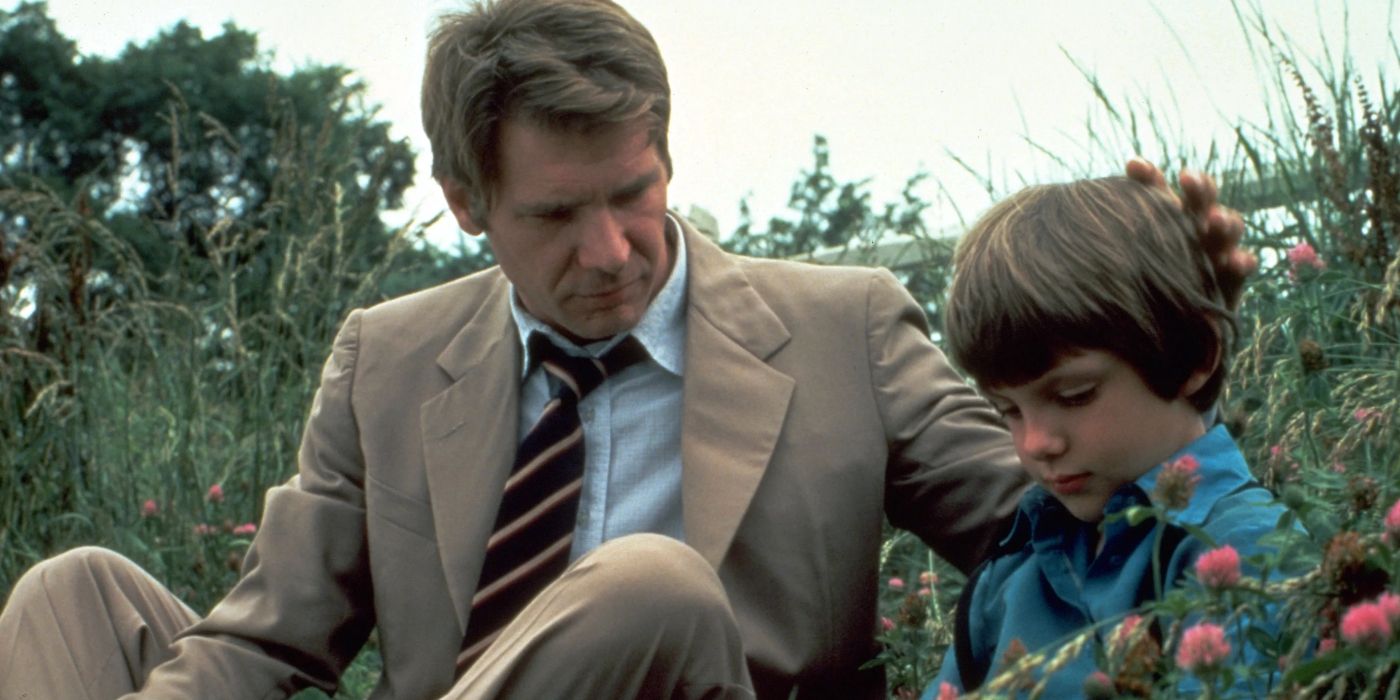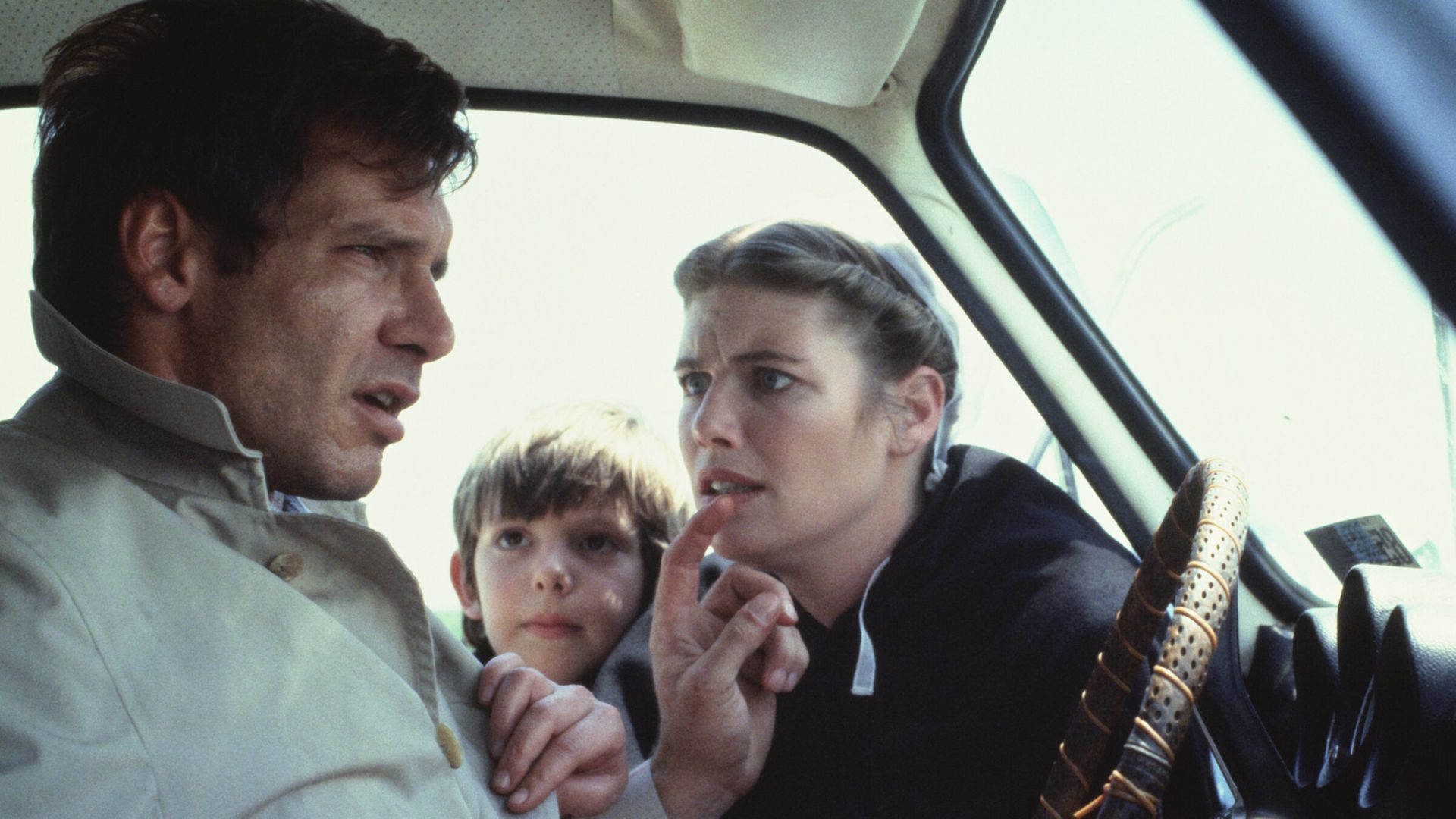
In a nutshell, Harrison Ford is undeniably one of the most influential and recognized actors in cinema history. His movies have amassed billions globally, and he’s brought to life some of the most universally recognized characters such as Han Solo from Star Wars and Indiana Jones. Furthermore, his rugged good looks, charismatic demeanor, and athletic abilities have solidified him as the epitome of the classic Hollywood action hero.
Ford has had surprisingly little achievement when it comes to the Academy Awards. Over the course of his nearly six-decade career, he’s only been nominated once. That nomination was for his leading role as police detective John Book in Peter Weir’s 1985 thriller Witness, where he had to safeguard an Amish widow (Kelly McGillis) and her young son (Lukas Haas) after the boy unintentionally saw a murder.
It appears that, contrary to popular belief, not only Academy voters admired the film Witness. This film also held a special place for the legendary filmmaker Akira Kurosawa, who listed it among his 100 favorite films posthumously. So, one may wonder, what was it about this relatively unknown Harrison Ford movie that garnered such heartfelt praise from both the esteemed Hollywood awards community and one of the world’s most prominent directors?
Why Is ‘Witness’ Harrison Ford’s Only Oscar Nomination?

It’s generally believed that John Book is Ford’s only Oscar-nominated role due to it being a standout performance in his almost six-decade career. However, while Ford’s portrayal in Witness was indeed impressive and complex, labeling it as his “best” performance might be pushing it a bit. In truth, the character of John Book shares many traits with several of Ford’s other well-known characters, such as Han Solo, Indiana Jones, and Rick Deckard from Blade Runner. These characters, like John Book, are stoic, tough individuals who also display deep loyalty and altruism.
While some suggest that Witness’s focus on Book’s relationships with Rachel and Samuel is what earned Ford his Oscar nomination due to showcasing a more sensitive side, it’s worth noting that he has also demonstrated a tender and vulnerable persona in other roles mentioned previously, such as the romantic scenes from Blade Runner (1982) or his connection with another young boy in Indiana Jones and the Temple of Doom (1984), which resembles a father-son bond.
Essentially, what sets apart movies like Witness from Blade Runner, Star Wars, and Indiana Jones is their genre classification. While the former trio falls under science fiction, Indiana Jones blends action, adventure, and fantasy. In essence, they all fit into the category of “genre” films. Over the years, the Academy has been hesitant to acknowledge performances in genre movies. Few actors from genre flicks have even been nominated for an Oscar, let alone won one. This reluctance might stem from the common perception that genre films are merely ‘popular entertainment’ rather than serious artistic works, focusing more on special effects, set design, and action sequences than on profound themes or storytelling.
Instead of featuring the grandiose special effects, elaborate sets, and flamboyant costumes that are characteristic of films like Star Wars, Indiana Jones, and Blade Runner, Witness opts for a more subtle approach. While there are a few exhilarating action scenes, the film primarily focuses on developing the characters and their relationships, particularly when Ford’s character arrives in the Amish community. This understated quality gives Ford’s performance prominence, making it simpler for Academy voters to recognize his acting talents.
Why Did Akira Kurosawa Love ‘Witness’?
It’s unfortunate that we don’t know the specific reasons why Kurosawa was so deeply moved by the film “Witness.” However, there are some striking similarities between “Witness” and Kurosawa’s own works, which might help us understand his strong connection to it. For one, the plot of “Witness,” where a child becomes entangled in a perilous criminal scheme, bears a resemblance to Kurosawa’s critically acclaimed film “High and Low” (1963), which centers around a child’s kidnapping by a desperate criminal.
Additionally, during its latter part, when the character Book enters the Amish community alongside Rachel and Samuel, the movie begins to echo the grandeur of Akira Kurosawa’s legendary film Seven Samurai (1954). Both films depict secluded yet closely-bonded communities facing danger from hostile outsiders. In Seven Samurai, it is the bandits who seek to plunder the villagers’ crops. On the other hand, in Witness, the Amish community is menaced by the murderers that Samuel observed.
In essence, the tense final segment in the movie “Witness” where Book engages in a chase with the killers on an Amish farm shares a resemblance to the extended conflict between the samurai and bandits in “Seven Samurai“. Notably, both films invest considerable effort into making the communities they protect relatable and active, rather than portraying them as helpless victims.
In essence, the movie “Witness” embodies the essence of Akira Kurosawa’s filmmaking style, masterfully blending pulse-pounding action with deeper, thoughtful themes such as sacrifice, community, and justice. While we can’t know for certain what Kurosawa felt while watching Witness, it’s not hard to imagine that he saw a lot of himself and his artistic sensibilities mirrored in it. If this was the case, then it’s no surprise that it became one of his favorite films. By the way, you can stream “Witness” on PlutoTV.
Read More
- Clash Royale Best Boss Bandit Champion decks
- Vampire’s Fall 2 redeem codes and how to use them (June 2025)
- Mobile Legends January 2026 Leaks: Upcoming new skins, heroes, events and more
- World Eternal Online promo codes and how to use them (September 2025)
- How to find the Roaming Oak Tree in Heartopia
- Clash Royale Season 79 “Fire and Ice” January 2026 Update and Balance Changes
- Clash Royale Furnace Evolution best decks guide
- Best Arena 9 Decks in Clast Royale
- Best Hero Card Decks in Clash Royale
- FC Mobile 26: EA opens voting for its official Team of the Year (TOTY)
2025-07-06 17:02